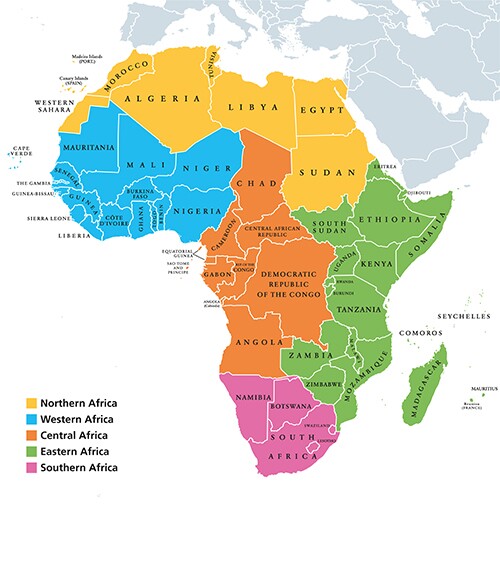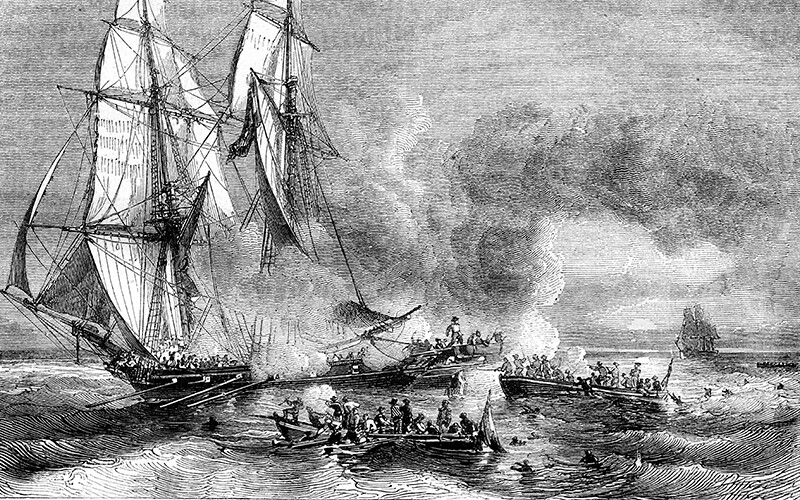Africa cannot be described accurately with a simple summary, and there is always more to learn about its land and people. For example, around the world people often ask whether Africa is a country—a question that is frequently searched in internet search engines. Africa is actually a continent—the second largest in the world after Asia. Many people around the world have African heritage and share ancestry with those that live in this beautiful land.

At least 18 major ethnic groups call Africa home, and well over a thousand different languages are spoken there, with some estimating the actual number of languages to be above 3,000.
Africa is made up of 54 countries, including Kenya, Ghana, and Morocco. Other African countries may be less familiar to many, such as Senegal, Comoros, and Eritrea. Do you know if you have ancestors from any of these places?
Your Journey of Discovery
If Africa is calling to you, here are resources for learning more:
Nearly 150 recorded sessions about Africa and African heritage are available on the RootsTech website for free, in multiple languages. These sessions cover topics ranging from history and research to culture and food. Whether you want to learn about African ancestry or want to experience African culture, these videos and resources can help.
The Lay of the Land
The equator crosses through Africa with almost equal areas above and below. The continent can be divided into 8 major physical regions, each with their own animal life and vegetation.

You may recognize several of the regions, such as one of the world’s hottest deserts, known as the Sahara, and the vast rolling grasslands that cover nearly half the continent, which are known as the savannas. Other regions include the mountainous Ethiopian highlands and the African Great Lakes.
If you’re looking for areas of stunning natural beauty, you’ll find them in Africa—for example, the massive Victoria Falls, the live lava lake atop Mount Nyiragongo (with a notable eruption in 2021) and the Blyde River Canyon.
In Namaqualand, springtime turns the normally dry landscape into a vibrant expanse of wildflowers.
Historical Highlights
Two major historical influences that have shaped the lives of Africans have impacts that continue even today. The first is colonialism, “the policy or practice of control by one people or power over other people or areas.” Seven western European powers colonized parts of Africa for various reasons, ranging from economic to political to religious. Colonialism took place in Africa from about 1881 to 1914.

The other is human slavery, which was practiced in Africa even before the broader slave trades that started in the 15th century. Existing slave systems in Africa then began selling captured Africans in the new trades as well. The resulting diaspora took Africans to countries around the globe, with the highest populations going to the United States, Brazil, and Haiti.
Thanks to the efforts of abolitionists and human rights advocates, slavery is now illegal throughout Africa and many other places around the world.
Culture and Values
Culture and values can vary between ethnic groups in Africa, but most cultures have common threads. Family relationships, both immediate and extended, are highly valued. There is a strong expectation of respect for older members of society and those in authority. Care of the environment is practiced and encouraged.
Most Africans follow Christian or Islamic faith traditions. However, there are still some who follow traditional African religions, which include belief in one or more gods and honoring the dead. These traditional religions are typically passed from one generation to the next through oral tradition, songs, and festivals.
Storytelling and folktales also play an important role in African culture—they transmit values from generation to generation and provide entertainment.

Oral Histories
With a culture that values extended family and oral tradition, it’s not surprising that oral tradition in Africa is used to pass family history from generation to generation. Tribes often have a “storyteller” responsible for memorizing genealogies and other important information.
However, oral family histories may be lost due to war, death, migration, and other factors. That’s why FamilySearch is helping to preserve many of these oral histories. According to program manager Ken Finch, over 970,000 interviews have been conducted in over 700 languages as of July 2022. In addition, over 4,600,000 photos have been taken to enrich these oral histories.
Discover more Heritages
What is RootsTech?
RootsTech is a place to learn, be inspired, and make connections through family history. Hosted by FamilySearch and sponsored by other leading genealogy organizations, we have hundreds of expert classes, tips and tricks videos, and inspiring stories that can help you experience family history like never before. Visit our on-demand learning library or make plans to join us for our next virtual or in-person conference event.
At FamilySearch, we care about connecting you with your family, and we provide fun discovery experiences and family history services for free. Why? Because we cherish families and believe that connecting generations can improve our lives now and forever. We are a nonprofit organization sponsored by The Church of Jesus Christ of Latter-day Saints. To learn more about our beliefs, click here.















